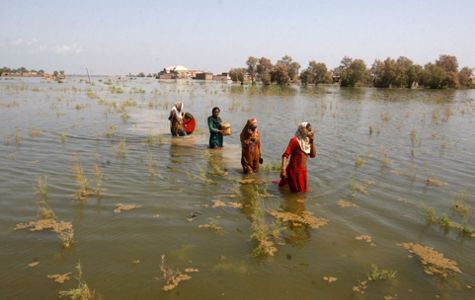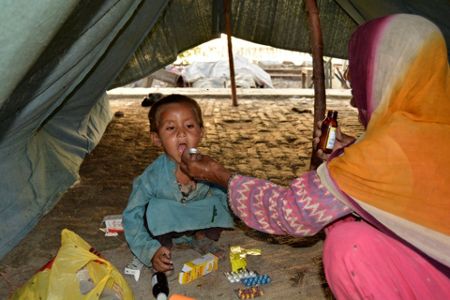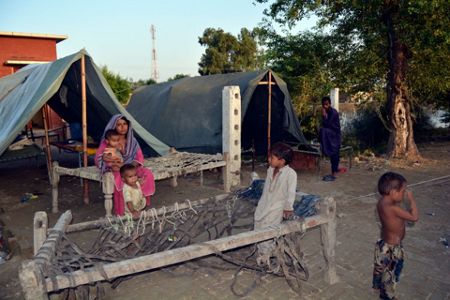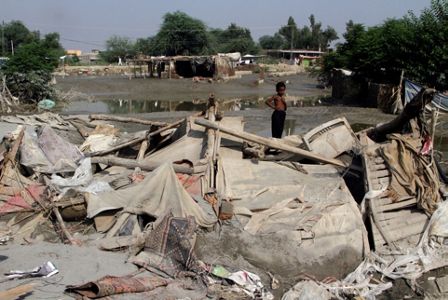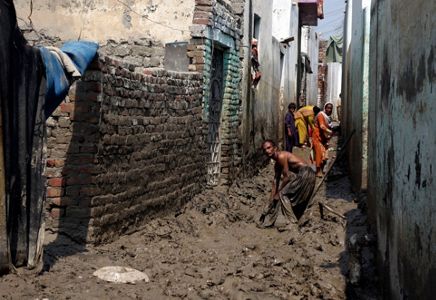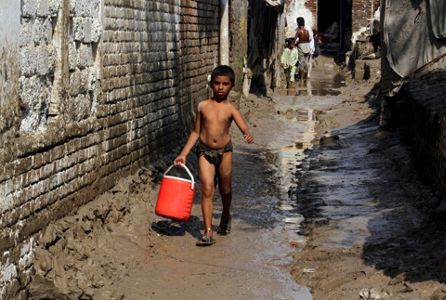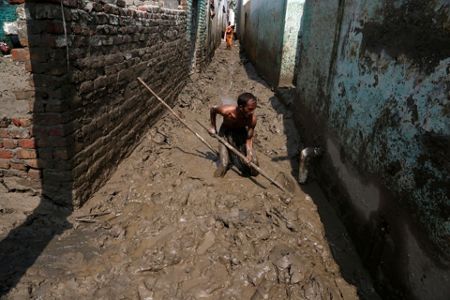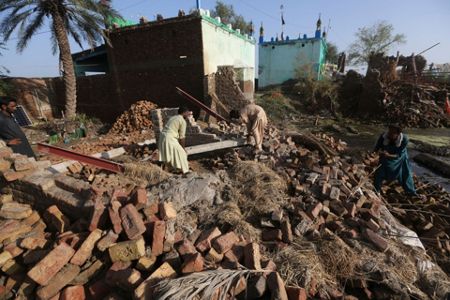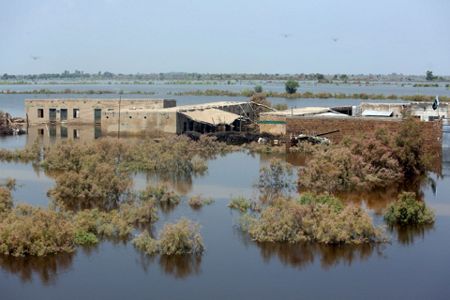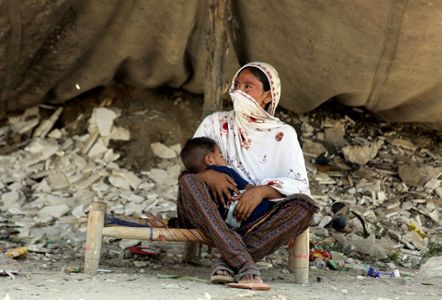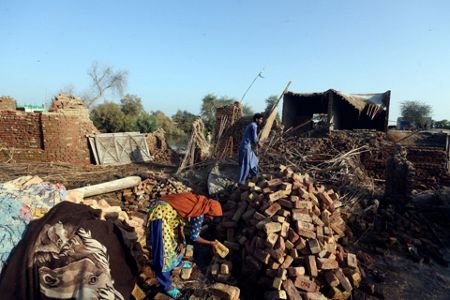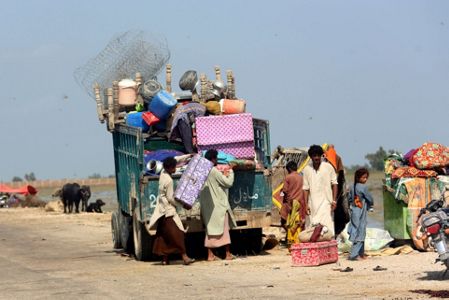ISLAMABAD (AP) — Planes carrying fresh supplies are surging across a humanitarian air bridge to flood-ravaged Pakistan as the death toll surged past 1,200, officials said Friday, with families and children at special risk of disease and homelessness.
The ninth flight from the United Arab Emirates and the first from Uzbekistan were the latest to land in Islamabad overnight as a military-backed rescue operation elsewhere in the country reached more of the 3 million people affected by the disaster.
Two more planes from UAE and Qatar with aid will arrive in Pakistan later Friday, and a Turkish train carrying relief goods for flood victims was on its way to the impoverished nation, according to the Foreign Ministry.
Multiple officials and experts have blamed the unusual monsoon and flooding on climate change, including U.N. Secretary-General Antonio Guterres, who earlier this week called on the world to stop “sleepwalking” through the deadly crisis.
Guterres will visit Pakistan on Sept. 9 to tour flood-hit areas and meet with officials.
According to initial government estimates, the devastation has caused $10 billion in damage.
Earlier this week, the United Nations and Pakistan jointly issued an appeal for $160 million in emergency funding to help the 3.3 million people affected by the floods, which have damaged over 1 million homes.
The U.N. refugee agency said Friday that while the response to the appeal was “very encouraging," more help is needed.
UNHCR spokesman Matthew Saltmarsh said they were quickly releasing tents, as well as blankets, plastic sheets, buckets and other household items for flood victims. “The scale of the devastation that people face is unimaginable," he said.
The planes brought additional food items, medicine and tents. Pakistani Prime Minister Shahbaz Sharif had planned to travel to UAE on Saturday, but he postponed the trip to visit flood-hit areas at home.
So far, Pakistan has received aid from China, Saudi Arabia, Qatar, Turkey, Uzbekistan, U.A.E. and some other countries.
The head of the U.S. military’s Central Command, Gen. Michael Kurilla, called Pakistan’s chief of army staff, Gen. Qamar Javed Bajwa, on Friday, offering his condolences. Central Command said it will send an assessment team to Islamabad to see what support it can provide.
The United States announced $30 million worth of aid for the flood victims earlier this week.
Since 1959, Pakistan has emitted less than half of 1% of the world's heat-trapping carbon dioxide, compared to 21.5% by the United States and 16.4% by China, according to scientists and experts. Pakistani officials and experts say there’s been a 400% increase in average rainfall in some parts of the country, which led to the extreme flooding.
Ammar Malik, a research scientist at AidData, a research lab at the College of William & Mary in the United States, said global warming had worsened the floods in two ways, by hastening the annual monsoon and accelerating summertime glacial melting.
“The predictability of weather systems depends on the delicate balance of climatic conditions underlying them. Any irregularities, such as higher than normal temperatures due to climate change, can disturb this balance and cause abnormalities in weather patterns,” he said.
On Friday, authorities were warning people in the district of Dadu in the southern Sindh province to move to safer places ahead of floodwater from the swollen Indus river that's expected to hit the region this week.
In May, some parts of Sindh were the hottest place in Pakistan. Now people are facing floods there that have caused an outbreak of waterborne diseases. Although flood waters continued to recede in most of the country, many districts in Sindh remained underwater.
Farah Naureen, the director for Pakistan at the international aid agency Mercy Corps, told The Associated Press that around 73,000 women will be giving birth within the next month, and they needed skilled birth attendants, privacy, and birth facilities.
The military said rescuers, backed by troops, resumed operations early Friday. They are using boats and helicopters to evacuate people from remote regions and to deliver aid.
Since mid-June, floods have also killed more than 700,000 goats, cows, and buffaloes and damaged crops. Pakistan's government has been forced to import vegetables to avoid shortages. Pakistan is also in contact with Russia to import wheat.
Copyright 2022 The Associated Press. All rights reserved. This material may not be published, broadcast, rewritten or redistributed without permission.


